Most SaaS founders and business marketers use SEO tools to increase their visibility and topical authority across SERPs.
They also use such tools to identify content gaps, conduct keyword research, and leverage link-building opportunities.
Because there are plenty of SEO tools online, navigating this digital landscape is both troublesome and time-consuming.
In our guide, we’ve selected the top 5 most essential SEO tools for your B2B SaaS business or startup.
Also, we share at the end of this article our own SEO tool stack that costs less than $99 per month.
Table of Contents
Choose the Right SEO Tool for a SaaS Growth Strategy
Before settling on any tool or software, every SaaS business must define a list of requirements that target specific goals.
Once you identify your needs, you can choose a suitable SEO tool to achieve strategic objectives:
- Enhanced visibility and organic reach
- Targeted audience engagement and lead generation
- Establishing brand authority and building trust
- Data-driven decision making for growth strategies
- Staying ahead of algorithm changes and competition
Using these tools, SaaS businesses can build a content marketing strategy to improve traffic on the website.
We also recommend implementing inbound marketing tactics to increase brand awareness across SERPs.
SEO and inbound marketing are considered customer acquisition channels. In fact, SEO is part of inbound marketing, which prioritizes website visibility.
While inbound marketing helps generate leads through your website content, SEO enables and boosts this strategy by targeting search intent-based keywords to ensure quality traffic.
SEO and inbound marketing together help weed out unnecessary traffic and instead focus on content that revolves around a user’s search intent.
To support each step of the SaaS SEO process, you need the right tools to save time and resources and get accurate data.
Most SEO experts in SaaS leverage technology to streamline processes like:
- Keyword research to find the right idea for your article: You can source many long-tailed keywords and analyze metrics such as search volume to determine relevance.
- Competitor analysis to understand the content strategy of your competitors: You can identify gaps in your content strategy with competitor analysis.
- Content planning and creation: You can create content briefs, write and edit content, and schedule publishing using automated SEO tools.
- Ranking monitoring: You can determine the ranking of web pages, like which pages appear in SERPs and for what set of keywords.
- Performance review and optimization: You can also analyze the performance of your website, optimize, and update your content.
Our Selection of SEO Tools for B2B SaaS and Startups
Ahrefs: Identify keywords and analyze competitors
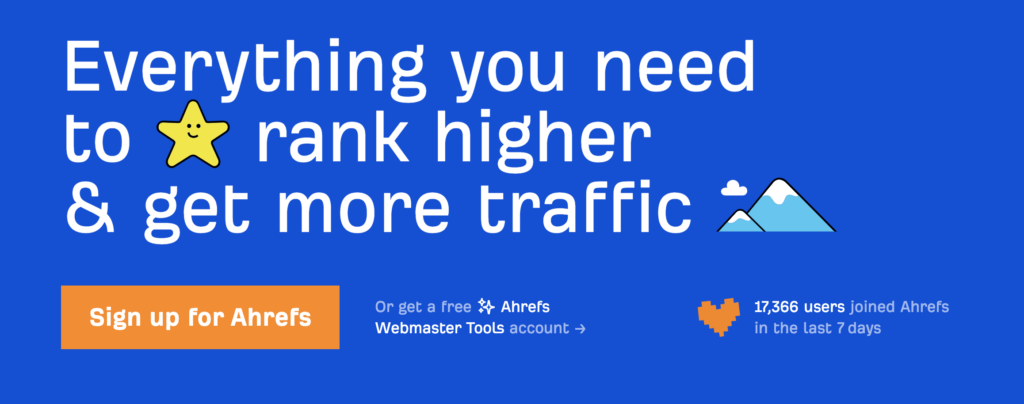
Most SaaS marketing experts use Ahrefs to track and monitor their keyword research process, including analyzing keyword data of provided competitors.
You can sift through your competitor’s content and discover unique search terms or long-tail keywords.
You can brainstorm keyword data related to your SaaS product, find topic ideas on industry-based search terms, and uncover additional keyword opportunities.
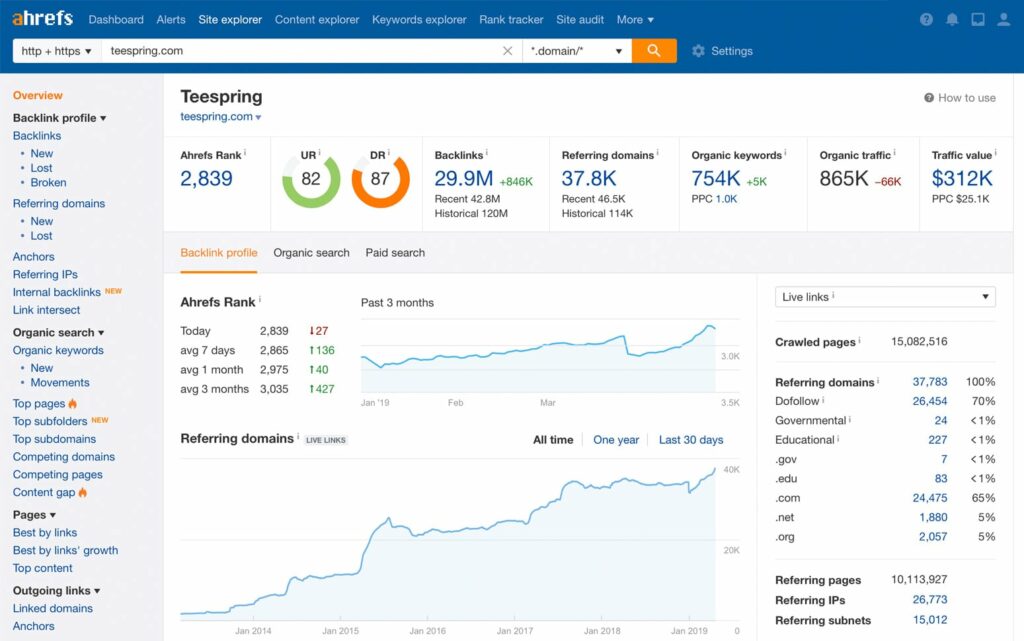
You can also refine your list with the help of filters to target the best and most profitable search terms.
Though Ahrefs is one of the leading keyword research tools, it is best at analyzing backlinks as it hosts one of the largest indexes.
Ahrefs is proud to be the most active web crawler in the SEO Industry. Their bot browses millions of websites daily to build a robust index of data.
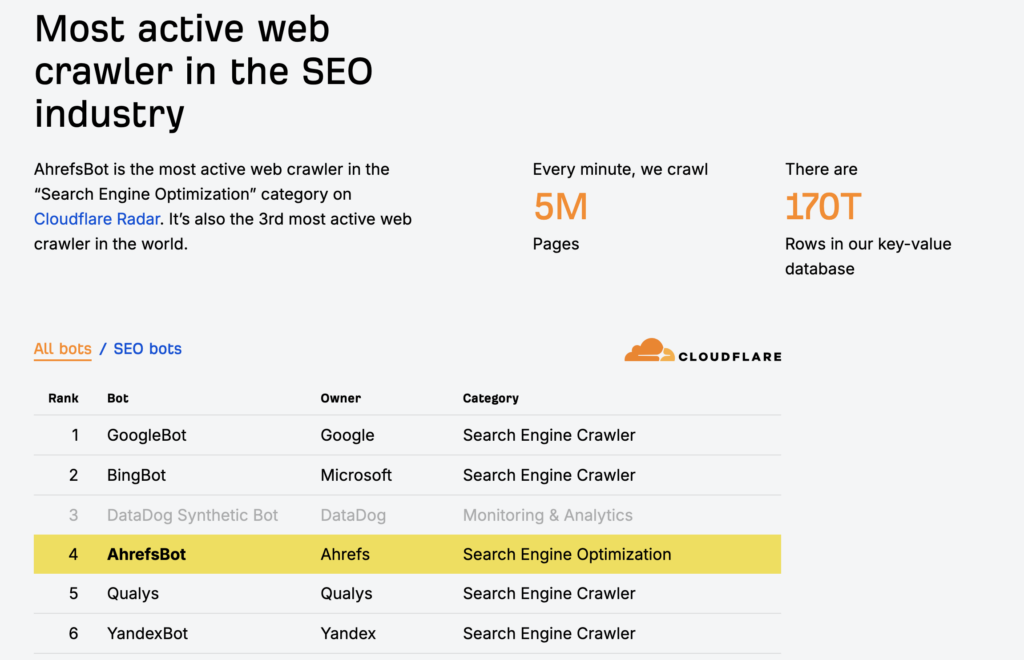
To spy on your competitors’ backlink strategy, you can start by entering a competitor domain or URL. You’ll get a complete list of backlinks, including domain ratings.
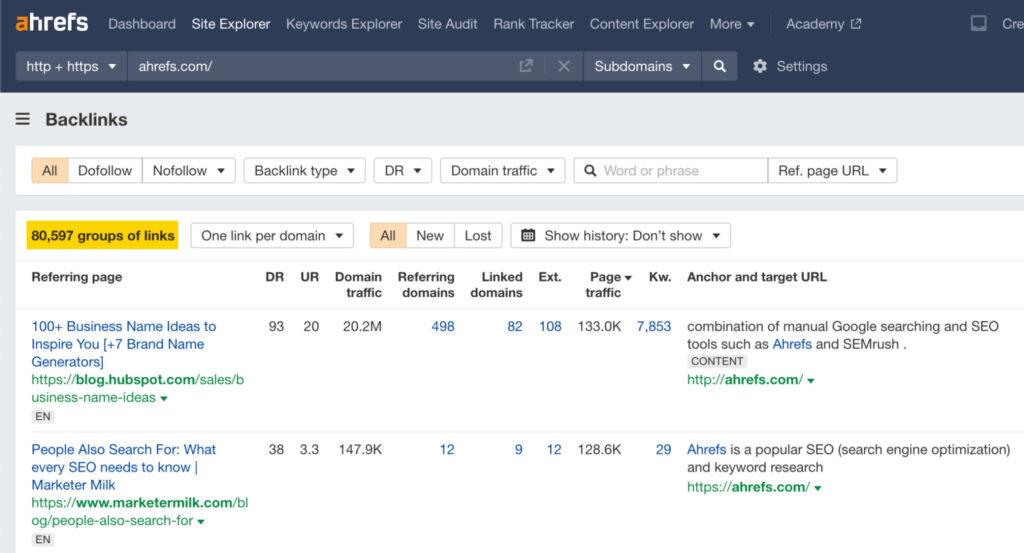
To rank your content across SERPs, SaaS marketers must focus on fixing technical issues on their websites.
You can use Ahrefs as an auditing tool to monitor page performance and fix issues. Additionally, Ahrefs will email you once the audit is complete and send a report identifying various issues.
Overall, Ahrefs is an SEO analysis tool that helps generate keyword ideas and more.
Whether you analyze competitive feeds or explore new search terms, the possibilities are endless with this automated tool that’s plugged into SERPs.
💰 Pricing: Ahrefs starts at $89 monthly with its basic plan.
🛠 Alternative: SEMRush, Moz, or Ubersuggest
thruuu: Build a targeted and achievable content plan
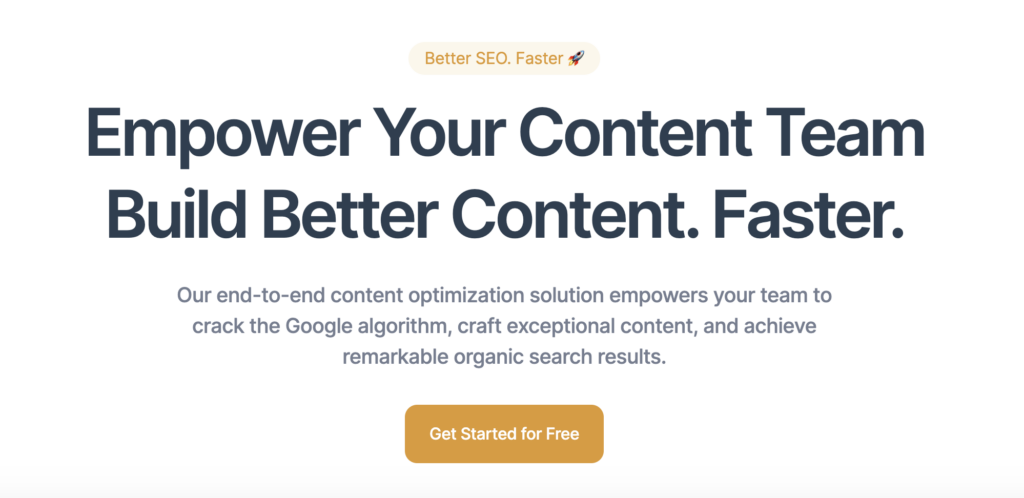
thruuu is one of the leading tools in content planning and optimization. It hosts several features that support a variety of activities in content production.
This SEO-friendly tool will help you create content briefs or outlines.
thruuu also features ready-made content brief templates for SaaS businesses and startups.
Using thruuu, you can analyze competitor content across SERPs, identify new topics and start delivering content briefs to your in-house writers.
Once you have the brief ready, then you can share it with your copywriters.
These ready-made SEO blog post templates help speed up content production efforts for any digital company.
thruuu also provides a keyword clustering tool for high-level content marketing.
Using the keyword clustering tool, marketers can group together relevant search terms and identify the best topics to focus on in their content strategy.
Thanks to this tool, you can easily form a long list of keywords and build a content plan for several weeks.
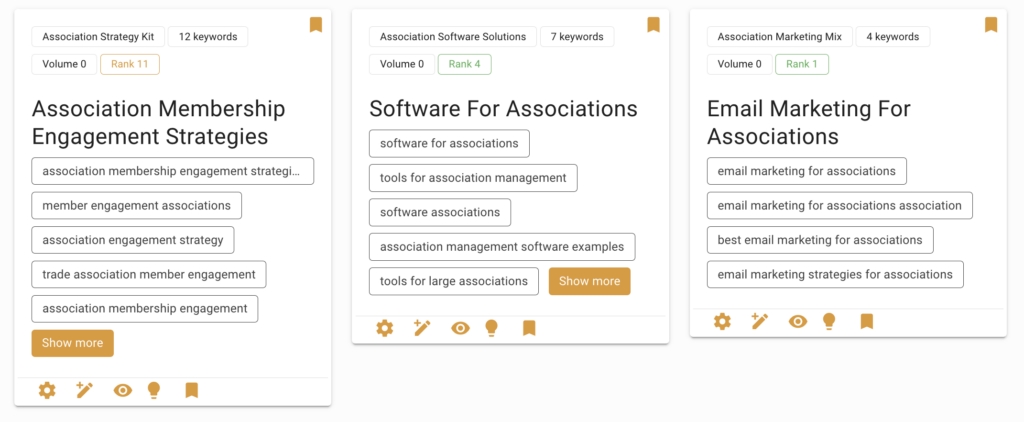
thruuu is an excellent content optimization tool that reduces revision times, accelerates research and content production, and gives access to competitor data.
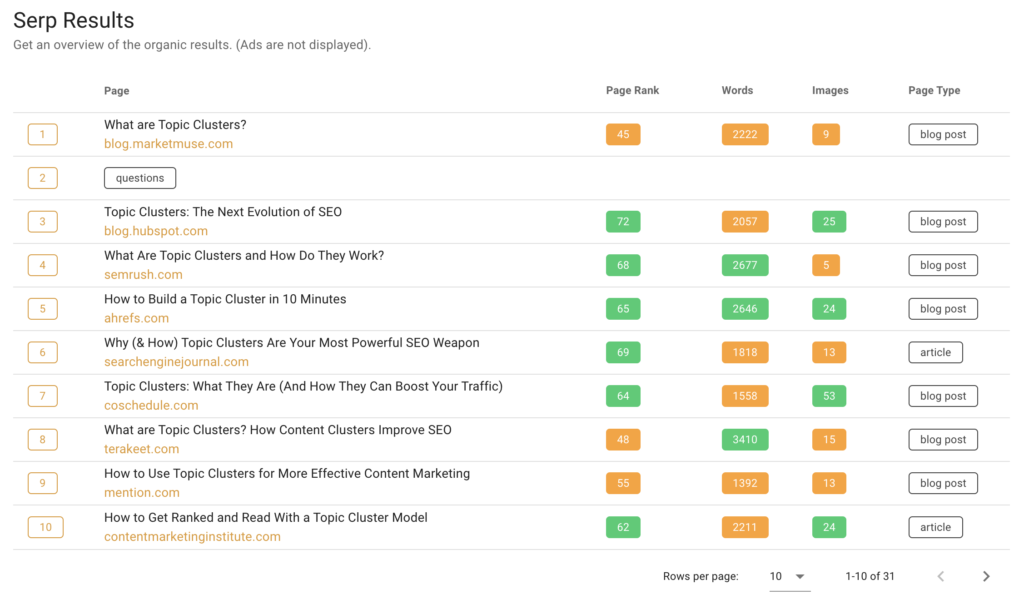
It also analyzes content structure and suggests improvements.
For instance, the tool gives insights on relevant headings, subheadings, and topics you can use in the content.
💰 Pricing: Starts at $19 per month with its basic plan.
🛠 Alternative: Marketmuse or Clearscope
Rankranger: Monitor your keyword rankings
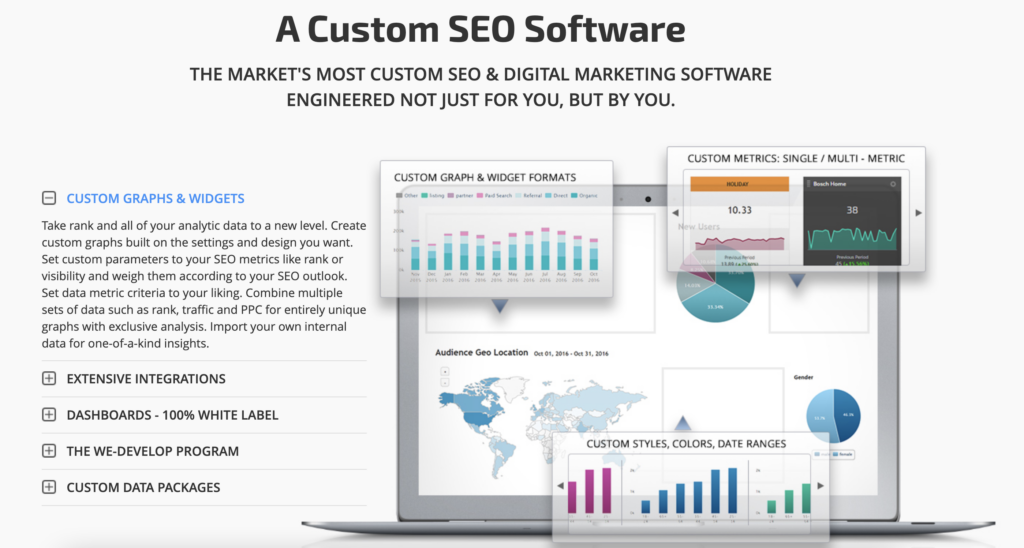
Rankranger regularly monitors your keyword rankings.
Rankranger provides valuable insights on page performance and helps identify improvement areas. It features a drag-and-drop marketing dashboard that can automate the scheduling of PDF reports.
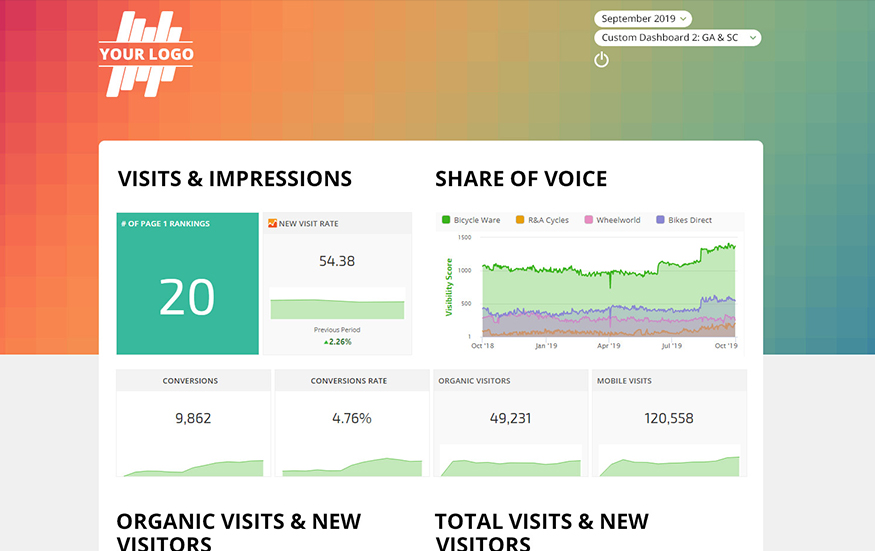
Powered by big data, this SEO tool uses dynamic graphs and statistical feeds to monitor your search engine ranking.
The tool provides accurate estimates based on which you can optimize your social media and marketing campaigns, including other campaigns in the organization that are vital to the company’s growth and sustenance.
Though it still needs some improvement in its backlink tracking feature, this SERP analyzer is specifically designed to assist SaaS companies. It’s a comprehensive platform that monitors organic, paid, local, and mobile ranks.
Note that it prioritizes local search results over distant ones to accelerate mobile visibility and accessibility.
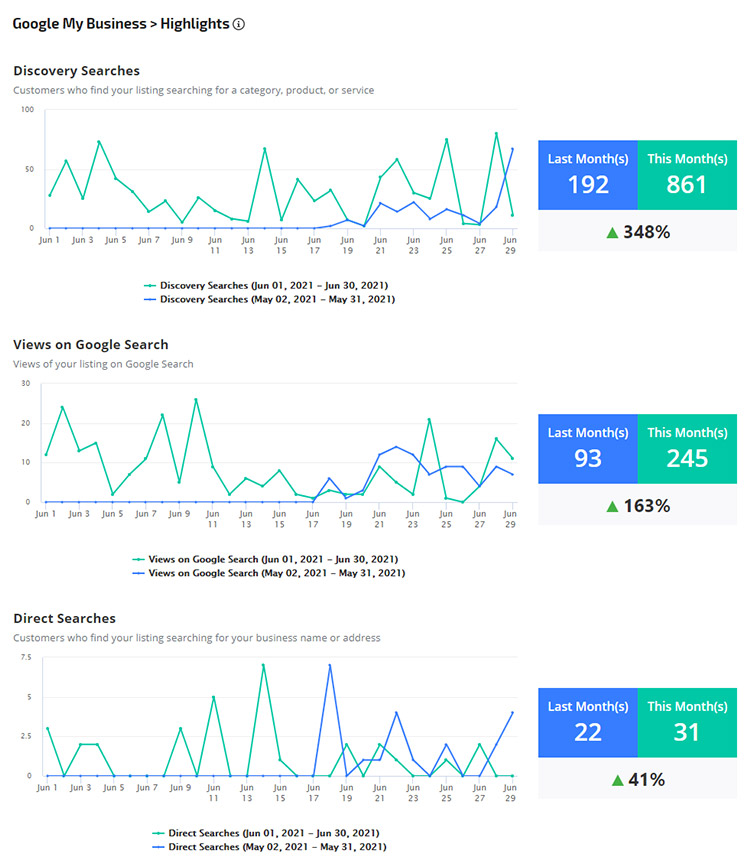
While monitoring site performance, it produces weekly, monthly, and annual reports.
Additionally, the tool helps create white-label reports in the form of conventional PDFs. Businesses can communicate SEO efforts with their teams using these reports.
💰 Price: Rankranger starts at $79 a month with its basic plan.
🛠 Alternative: Ranktracker or Ahrefs
Google Analytics: Uncover actionable insights

Google Analytics is a robust SEO platform that delivers key insights on web metrics like traffic, conversation rates, user engagement, and more. On top of this, you can use it for free.
Google Analytics is an enterprise-level monitoring tool that provides in-depth analysis of performance indicators and assists with reporting.
For instance, SaaS companies can use this tool to create standardized ROI reports.
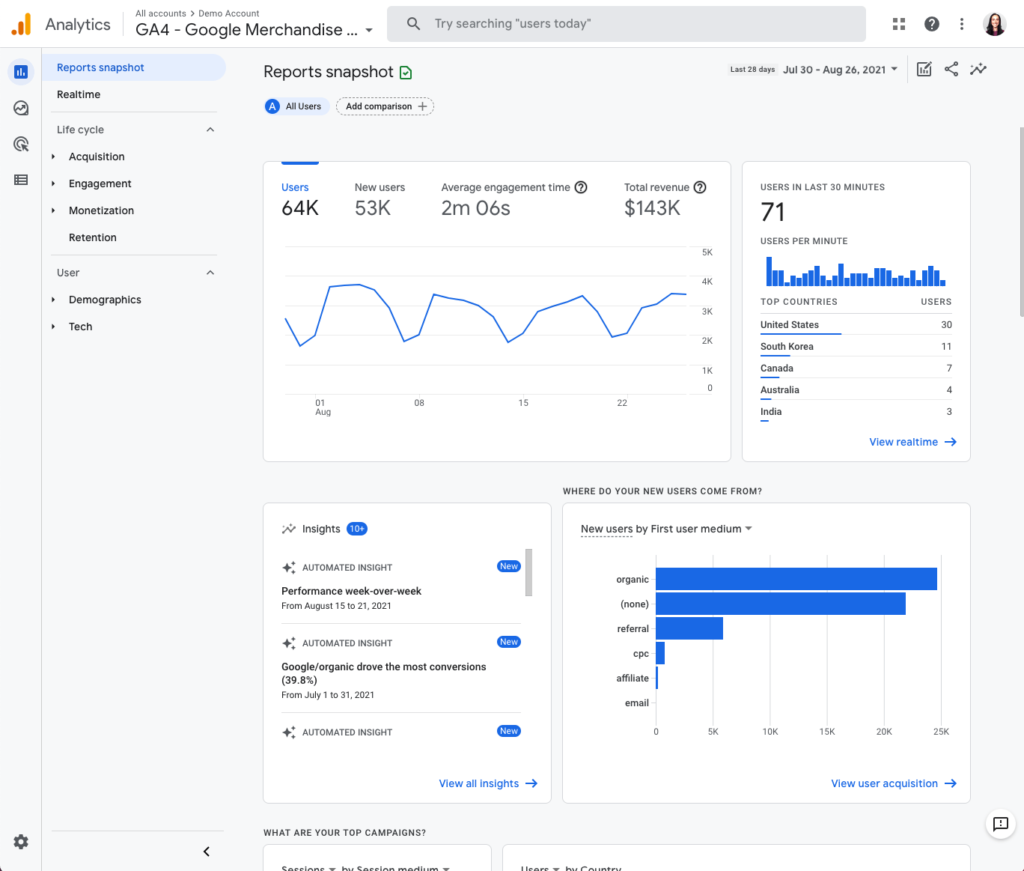
The platform features a centralized dashboard that connects with other data sources and is easy to use with oversimplified overviews.
The software uses machine learning to identify customer trends, patterns, and buying behaviors.
Google Analytics also measures conversions and sales. As a result, it helps determine the webpage with the most conversions and helps you finetune your content strategy to help you focus on topics driving revenue.
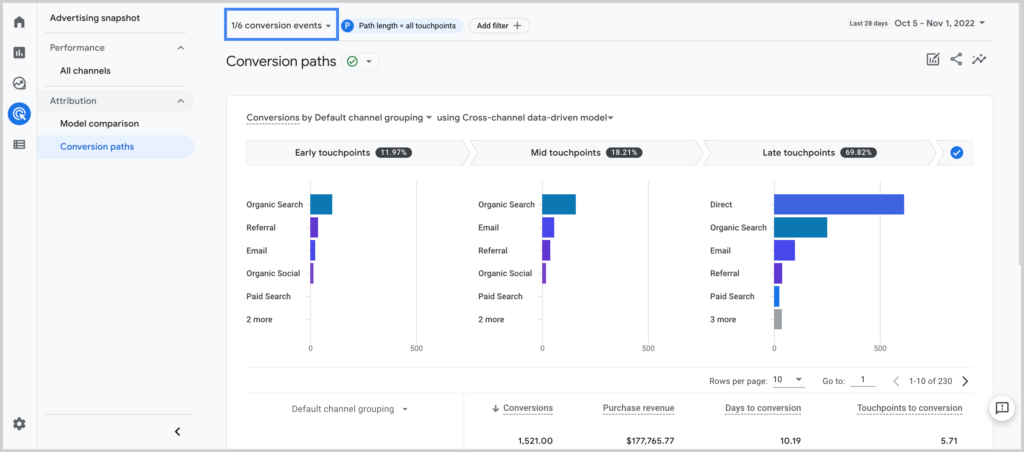
The free version of Google Analytics provides users with meaningful, consistent, and on-time web analytics reports.
It is the ultimate tool to streamline, monitor, and effectively use data sets to achieve organic growth and visibility.
💰 Price: Free
🛠 Alternative: Piwik, Matomo, or Adobe Analytics
Google Search Console: Monitor and optimize website performance
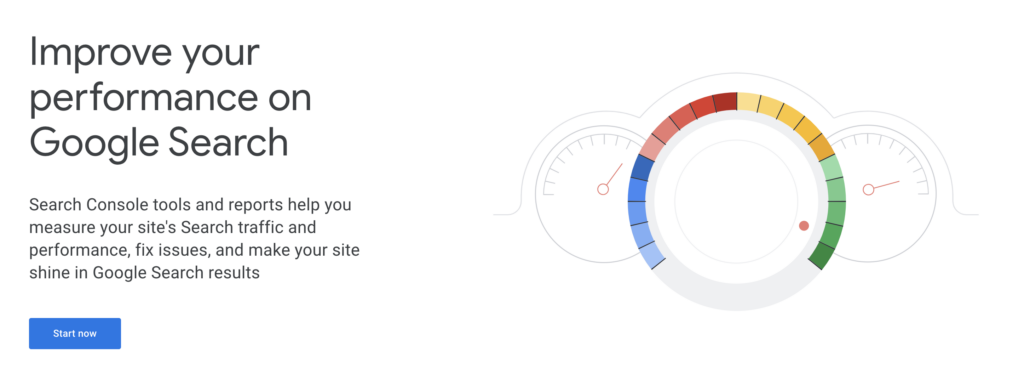
Google Search Console helps SaaS businesses make data-driven decisions with the objective of improving SEO efforts and delivering quality content.
Primarily, the tool helps you measure website traffic and fix navigational issues.
The best thing is that Google Search Console gathers keyword information from Google Search. In other words, you can identify the Google search and keywords driving clicks and impressions to your website.
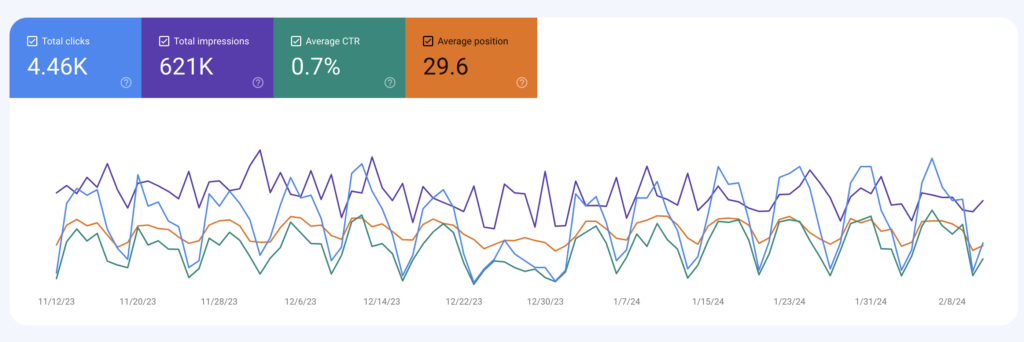
For instance, you can optimize website content by identifying which keywords drive the most impressions and clicks.
You can conduct cost-benefit analyses for key search terms to increase click-through rates and optimize your content strategy.
Another way to use Google Search Console is to fix technical issues on a web page, source new keywords, and monitor specific parameters on their website like page sessions, CTR, etc.

Google Search Console is ideal for SEO beginners. All you need is a website and a Google account to log in.
Once you’ve verified site ownership, you can access your website’s Index Coverage Report, which presents insights on technical errors (if any).
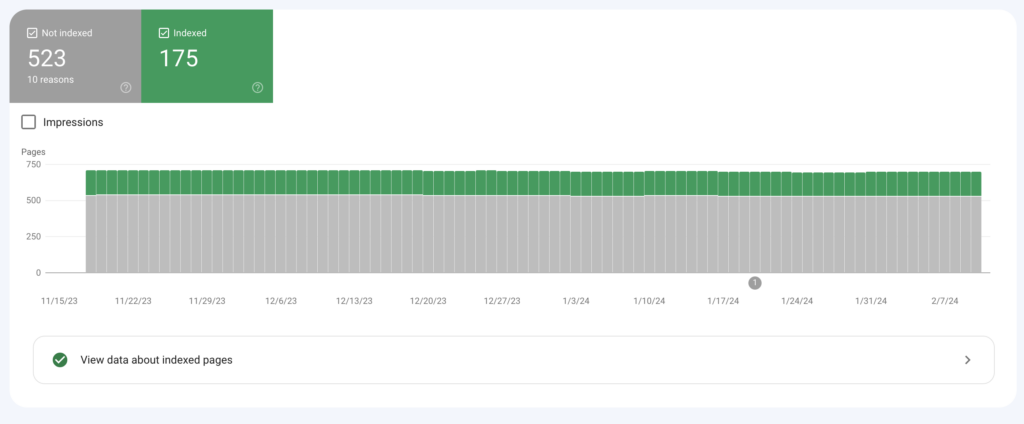
You can also consider submitting a sitemap to Google Console. This ensures that your web pages get discovered by search bots.
Overall, the tool speeds up your site discovery and you can monitor the site’s performance with a search performance report.
💰Price: Free of cost
🛠 No alternative.
What SEO Tools Do We Use for Our Own SaaS Business?
At thruuu, we run an SEO SaaS business, and inbound and content strategy are very important to us.
We wanted to share with you what SEO tools we use to run our business.
You might be surprised that we don’t spend thousands of dollars every month and we still reach remarkable results. (It seems that you found us via a Google Search!!).
For Keyword Research and Content Planning
Google Search Console (GSC) is our favorite tool to collect keywords and gather new ideas. It might be surprising but we don’t use tools like Ahrefs or SEMRush.
To enhance Google Search Console, we also use Keyword Everywhere.
This Chrome extension enriches GSC’s report with metrics about search volume, CPC, and competition and helps make data-driven decisions when picking a keyword.
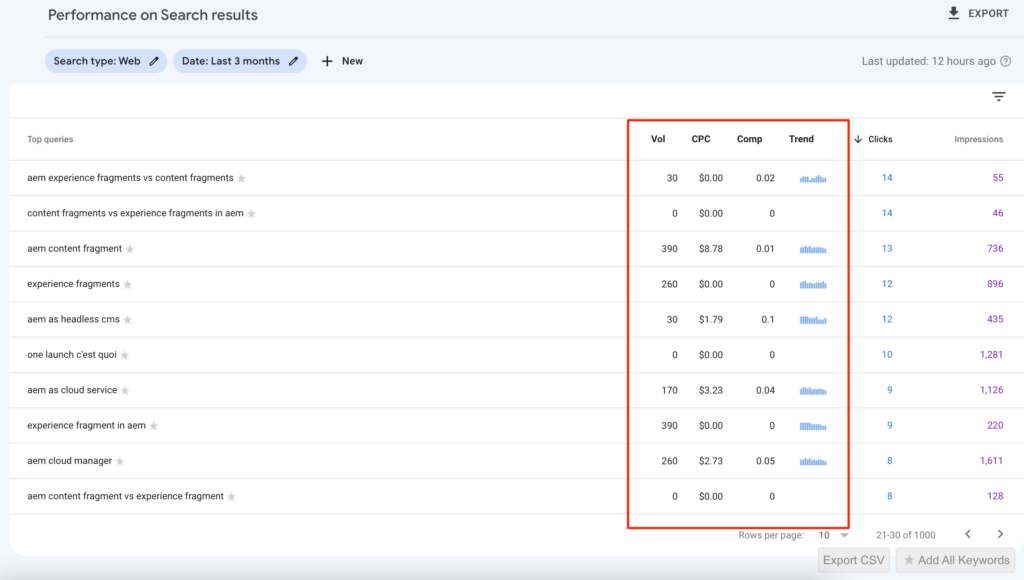
Our favorite way to use Google Search Console is together with our keyword clustering tool.
In a few steps, we can build a comprehensive content plan.
Let’s say we want to write several articles about creating content briefs or outlines.
In a few steps, here’s how we can create a content plan.
First, we will make a filter in GSC to get a list of keywords including the terms “content brief” or “content outline”.
We use the following regex “\b(?:content brief|outline)\b” to filter the view.
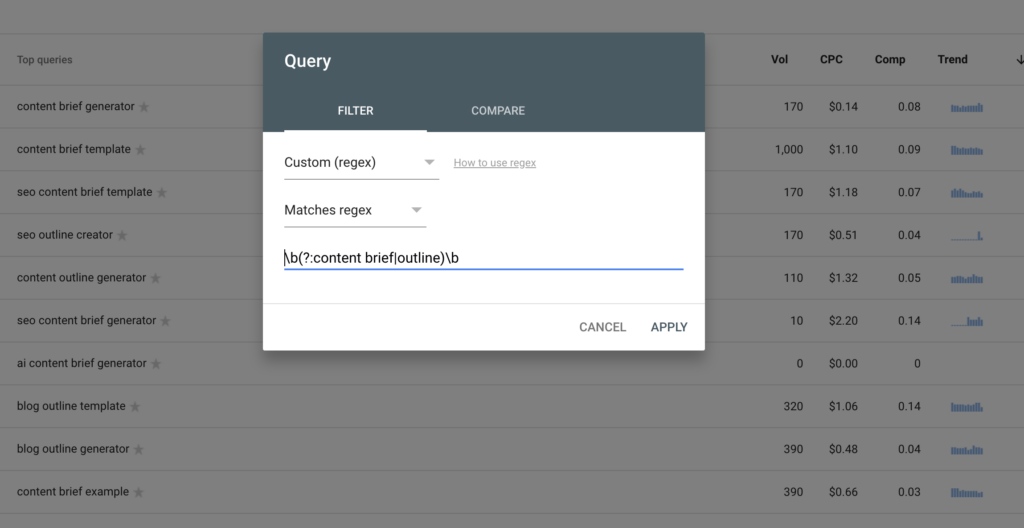
Then we export this list of keywords and upload them to the thruuu keyword clustering tool.
One minute later, the process is done and shows us a view where similar keywords are grouped together.
This view is perfect for building a content plan as we can identify a cluster of keywords where our website ranks and where it doesn’t rank yet.
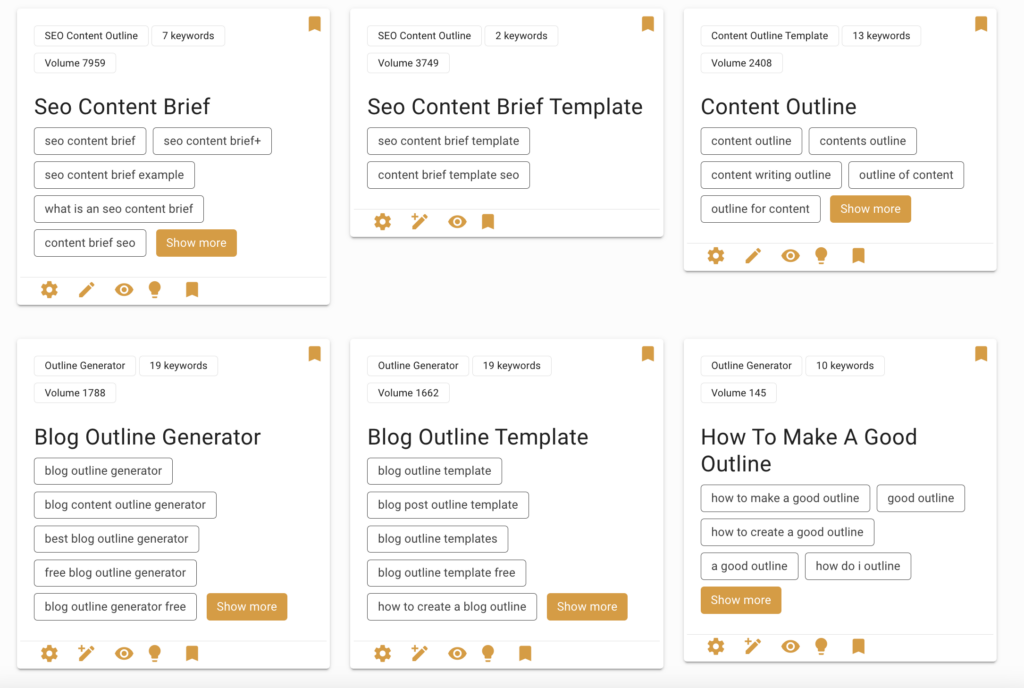
We focus on new content, where our site doesn’t rank and pick the cluster that makes sense.
In a few minutes, we have built a long list of topics.
Finally, we can start analyzing each group of keywords and turn them into a content brief.
Watch the video below where I create a content plan in 5 minutes.
For Competitor Analysis and Content Brief
Once we have an article idea, the first thing we do is analyze our competitors and explore Google SERPs.
thruuu has been designed at its core to analyze Google SERP.
The tool offers great reports to understand the page ranking for a specific keyword, the topics they covered, the questions they answered, the structure of their headings, and more.
In a few minutes, we get a sense of what should be included in our content brief.
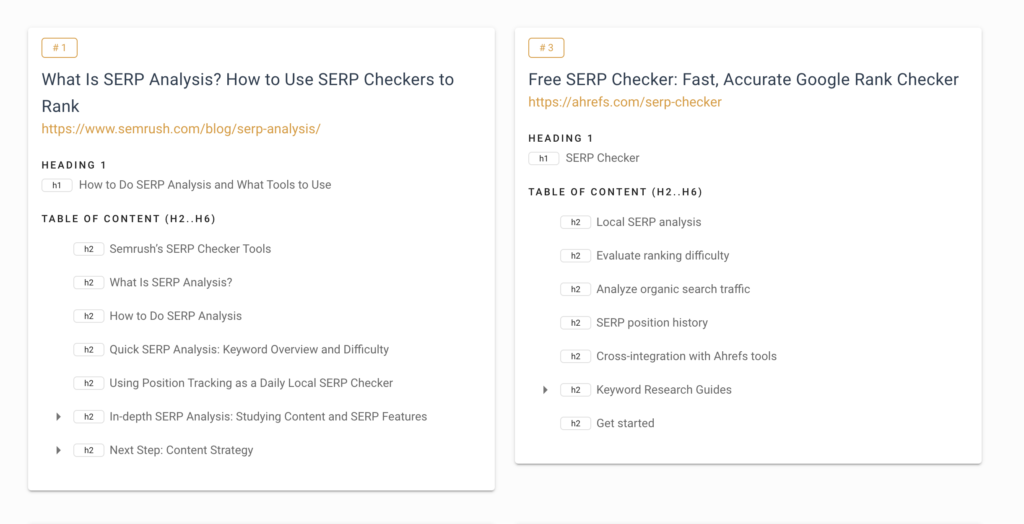
The next step is to use our content brief generator and create content briefs. Our tool automates the brief creation and leverages AI to create titles, descriptions, and content outlines.
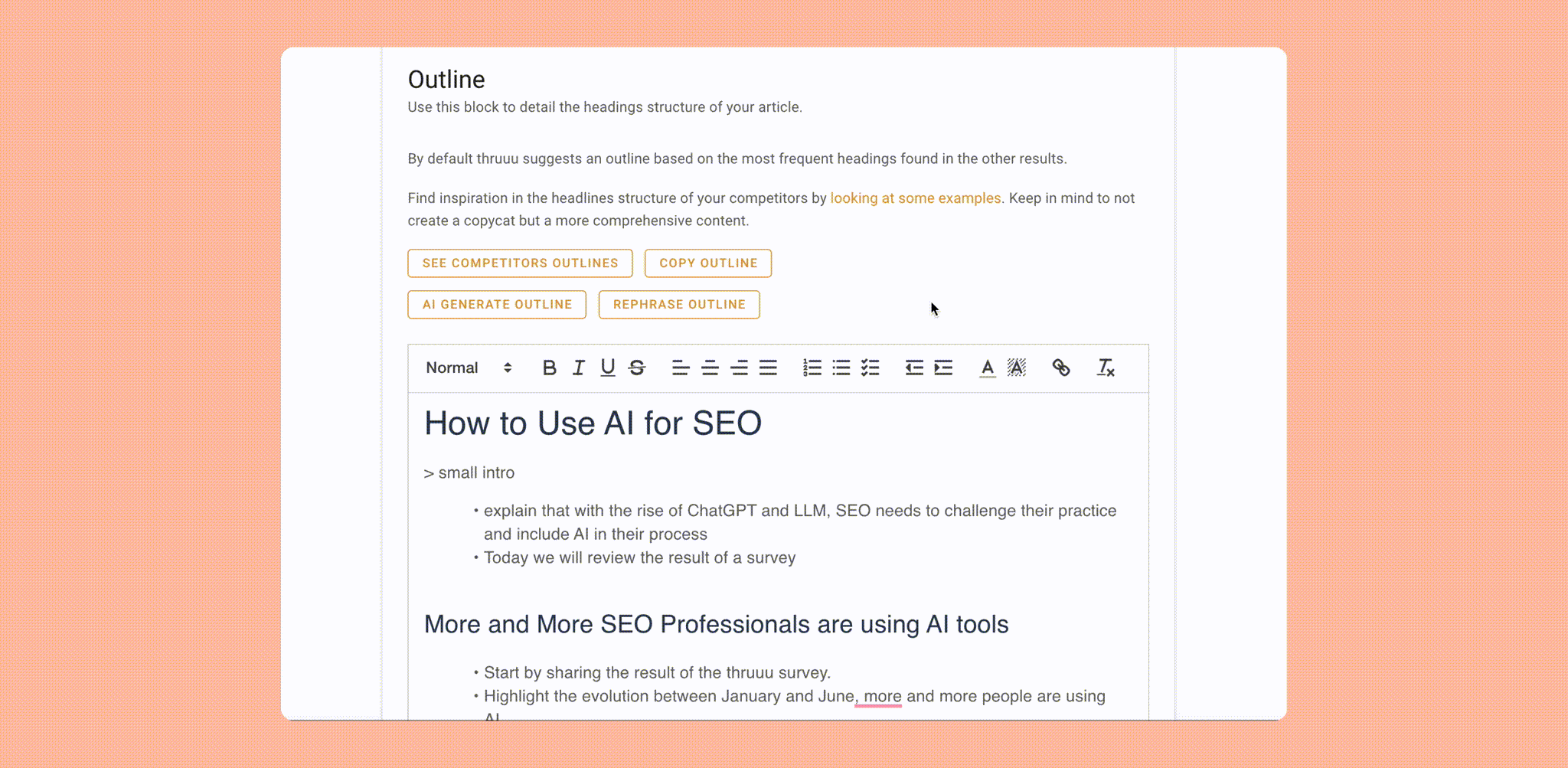
In less than 30 minutes, we can compile detailed briefs and then share them with our writers.
Indeed, we work with content writers and do not create AI content. We believe that humans can write content with more expertise and research than AI.
Check the video below to discover our content workflow.
For Content Analysis
Google Analytics helps us understand the best-performing pages on our website. Some key metrics that we follow include sign-up and paid conversion rates.
For this, we have set up specific reports. It helps us understand what kind of page drives traffic and conversions.
Then, we execute our content strategy and focus on the content type driving the most conversions.
For Content Update
Again, here we use our own tool, as thruuu offers an audit feature. It helps us understand what information or headings we need to update on our blog post by comparing it with our competitors.
The Page Audit tool is super simple to use. Once you have done a SERP analysis, you can enter the URL of the page you want to audit.
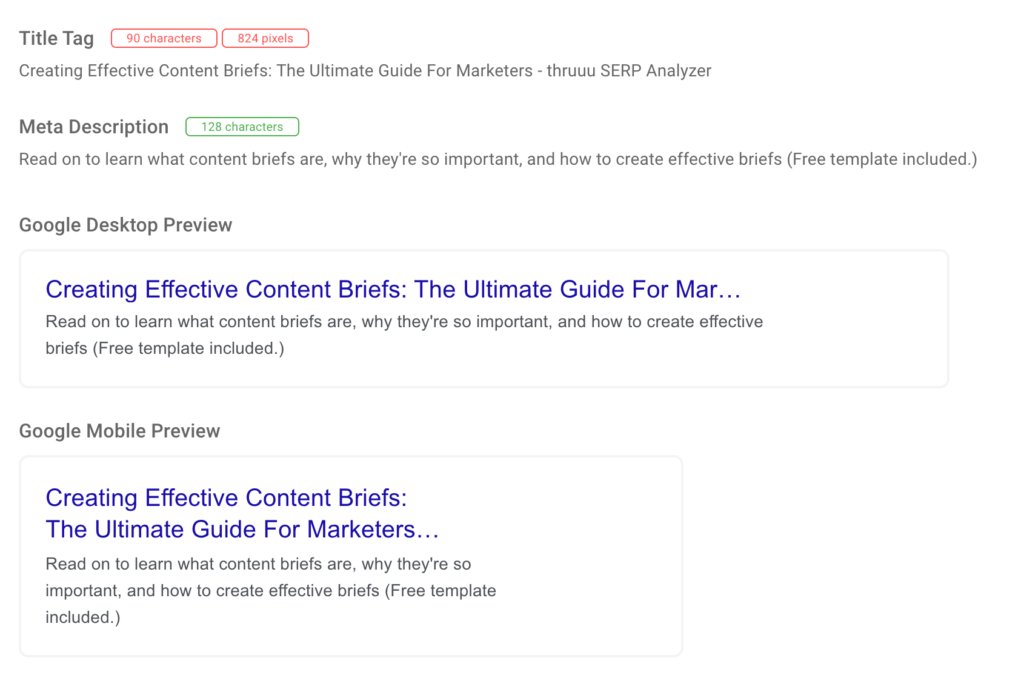
You will get some recommendations to refresh your content. Keep in mind that content refresh is an important aspect of SEO.
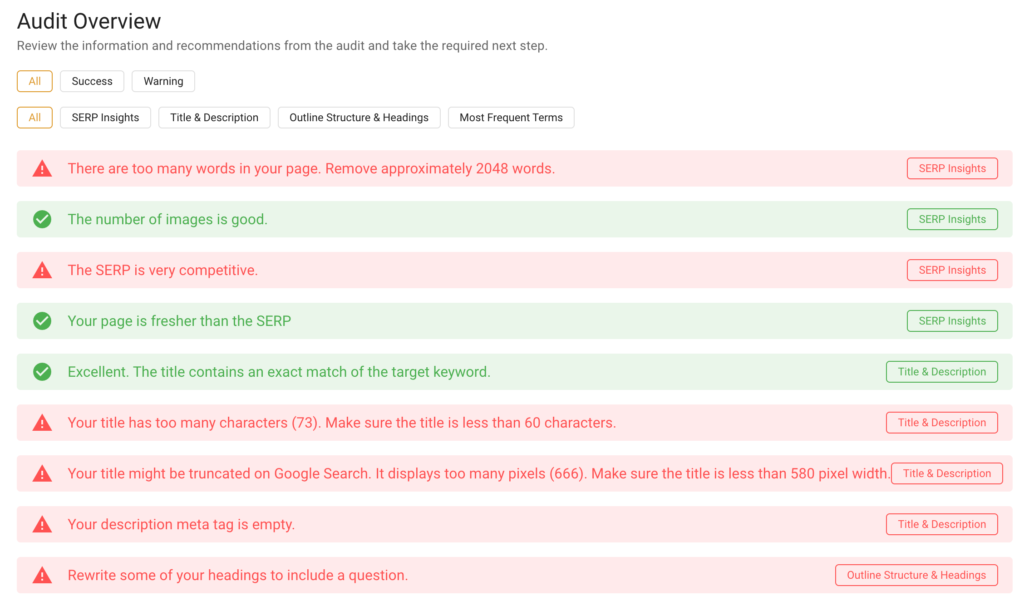
An SEO toolbox for less than $99 per month
As you can see, we have very few SEO tools in our toolbox, with the main ones being thruuu, Google Search Console, Keyword Everywhere, and Google Analytics.
This tool stack costs less than $99 per month and helps us achieve remarkable results.
We hope that our tips and list of essential tools will help you build your own.
Empower Your Content Team
Our end-to-end content optimization solution empowers your team to crack the Google algorithm, craft exceptional content, and achieve remarkable organic search results.
